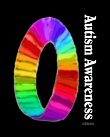Article I ran across on Christianity Today:
When Mother’s Day Is Hard
Taking solace in Scripture’s difficult and unsentimental image of motherhood.
By Jenell Williams Paris | posted 05/06/2004
Mother’s Day is hard for many women, myself included. Several of my friends long for marriage and children. Several are infertile or have lost new lives to miscarriage or stillbirth. One friend hardly speaks to her estranged mother, and several have mothers who have died. Another struggles with how her marital problems challenge her parenting. As for me, my triplet baby sons died last September. Each was lovely like every mother’s son, but their lives and my mothering were cut short. Like my friends, I face Mother’s Day with ambivalence—glad for all the good mothering in the world, but sad about my losses.
In the first weeks after their deaths, I couldn’t bear to look at a calendar because it showed only days and days of sadness ahead. Even a clock seemed too much, displaying minutes and hours ahead in which I would have to bear the absolute goneness of my children. This sharp bitterness has mostly passed, but this month the calendar shows Mother’s Day coming. Holidays are frequently hard for bereaved people, especially the holidays that celebrate the very someone you’ve lost. And the hype of Mother’s Day is just so hyped, salting the wound of childlessness, bereavement, or estrangement.
Hallmark holidays vs. the liturgical calendar
Unlike the unrealistic and sentimental feminine images dished out by Hallmark, the Bible and the church offer real stories of real women’s lives. And in contrast to the twelve-month calendar, the liturgical year offers time redeemed, meaning something more than just bearing sorrow through an interminable future. Now, I don’t know much about the liturgical year, but I’m learning to appreciate it. Typical for evangelical mutts, I’ve worshiped Jesus with little denominational loyalty, grounding myself at various times in traditions including Baptist, Evangelical Free, Evangelical Covenant, Church of God, and Mennonite. All of these churches are non-liturgical, but now I worship at a postmodern Protestant church that blends elements from various Christian traditions, including the liturgical year. This year, when my future looked like an abyss of sorrow, the liturgical year has helped me move through time with meaning. And for us who find Mother’s Day difficult, the church may offer hope in its measures of time and in its truthful perspective on women and family.
Mother’s Day is a secular holiday patched in during Easter Season, between Jesus’ resurrection and ascension. In evangelical churches like those of my childhood, it popped off the calendar like Christmas and Easter, with no apparent context. Unlike the religious holidays that commemorate events in Jesus’ life, Mother’s Day is too often a day for valorizing motherhood as a necessary and ultimate expression of womanhood. I’ve heard numerous comments in church similar to these, from a sermon preached by my Baptist grandfather. In a Mother’s Day sermon he said, “The greatest privilege and trust God ever gave women was motherhood … Mother’s love is the greatest love outside the love of God.”
Motherhood is a good thing, of course, and the holiday was created to honor mothers and their frequently unrecognized work. Though Christians have no mandate to celebrate, or even to mention secular holidays in the church, it may be wise to partner with the culture in honoring women’s work. Christians should, however, understand motherhood by considering both the Scriptures and the real lives of women in their congregations. Unfortunately, we too often take cues from TV, greeting card companies, and our own suburban dreams. As a result, women who do not fit these soft-focused fantasies are further wounded in church celebrations of Mother’s Day.
Evangelicals frequently promote an idealized narrative of women’s lives that begins with a marriage between virgins in early adulthood, a household in which men are financially dominant, two or three children arriving just on time, and a few housepets thrown in for good measure. This is, however, no longer an accurate story of most American women’s lives. Marriage between young virgins is becoming increasingly rare, as people marry later (age 26 on average), and well over 80 percent are sexually active before adulthood. Nearly half of American adults are unmarried, and about half of those married get divorced. One in five Americans struggle with infertility at some point, and millions experience miscarriage, stillbirth, infant death, or child death.
Scripture’s sorrowful mothers
A quick look at our culture shows that idealized images of motherhood are inaccurate, and Scripture reveals the same. Ruth was left childless and widowed at a young age. Rachel, Hannah, and Sarah were infertile. Eve and Mary lost sons under terrible circumstances. Two mothers of two kings, both named Ahaziah, encouraged their sons to be wicked and unjust. The prodigal son acted with terrible disrespect toward each of his parents. Scripture tells stories like those in our churches: women in diverse life circumstances, sometimes thriving, sometimes coping, and sometimes going under.
The fairy tale of marriage and motherhood is just that, a fairy tale. Our culture is one of motherhood deferred due to later childbearing, motherhood disrupted by divorce, motherhood lost by infant/child death and miscarriage, and motherhood unachieved due to infertility and undesired singleness. Of course, our culture also includes wonderful families with strong marriages and happy children. The point is that there is not a one-size-fits-all journey of womanhood, and we hurt women in our churches by venerating one path over all others.
If we consider Mother’s Day within the liturgical calendar, we could rely on the gospel reading for May 9 of this year, John 13:31-35:
At the last supper, when Judas had gone out, Jesus said, “Now the Son of Man has been glorified, and God has been glorified in him. If God has been glorified in him, God will also glorify him in himself and will glorify him at once. Little children, I am with you only a little longer. You will look for me; and as I said to the Jews so now I say to you, ‘Where I am going, you cannot come.’ I give you a new commandment, that you love one another. Just as I have loved you, you should love one another. By this everyone will know that you are my disciples, if you have love for one another.
Jesus didn’t promise his disciples that they would be happy, or, relevant to Mother’s Day, that they would have good relationships with their mothers or that they would be parents. In fact, he said they would experience sadness and longing in life, even in their relationship with him when he would no longer be with them. Likewise, we may be deeply disappointed in life: in our longings to be mothers, our attempts to become mothers, and in our needs to be mothered. Some of us will give and receive mother-love, and others of us won’t. This is sad, but true. Motherhood must not be the resting place for women’s tender hopes for wholeness. Like Jesus’ disciples, we are called to love each other and to love God. Love will make us whole.
So let’s be gentle with each other this Mother’s Day. Let’s celebrate with the women who have happy families. Let’s remember the women, men, girls, and boys who are hurt by their mothers. Let’s remember the mothers who have lost their children. Let’s remember the women who long to be wives and mothers, but aren’t. Let’s come together and worship Jesus alone, not idealized images of our mothers or ourselves.
Mother’s Day might be hard for me this year no matter what, but I’ll do my best to be blessed on that day. Instead of comparing myself to greeting card moms, I’ll think of the real women in my life, who carry both great happinesses and deep sorrows. I’ll remember women in my Christian story, including Eve, Sarah, Rachel, Hannah, and Mary. And I’ll go to church not to celebrate motherhood, but to receive the love of the God who mothers us all.
Jenell Williams Paris is Associate Professor of Anthropology at Bethel College in St. Paul, Minnesota. She is also the author of Birth Control for Christians (Baker, 2003) and co-author of Urban Disciples (Judson, 2000).
Copyright © 2004 Christianity Today. Click for reprint information.
![]()
![]() He doesn’t do it every day, but it is a really nice new development. Of course, he is also climbing everything…bookcases, tables, desks. I have found him more than once (it was quiet for a minute, not a good thing) laying on the top of bookcases.
He doesn’t do it every day, but it is a really nice new development. Of course, he is also climbing everything…bookcases, tables, desks. I have found him more than once (it was quiet for a minute, not a good thing) laying on the top of bookcases. ![]()





